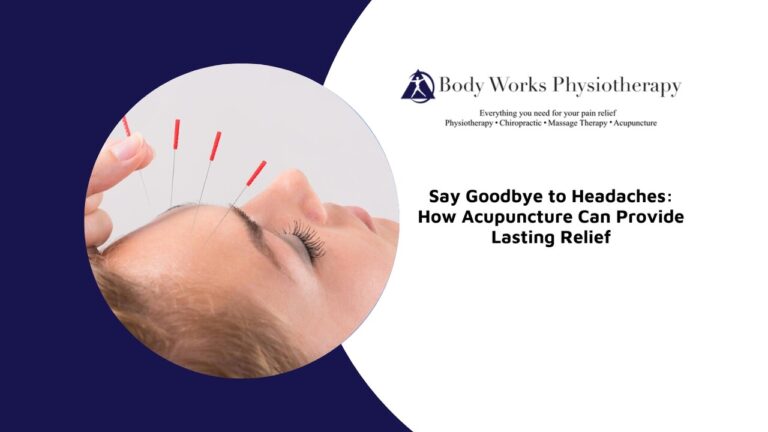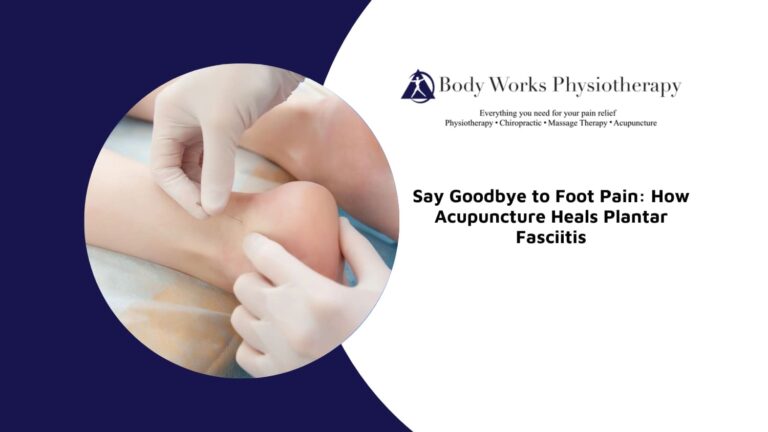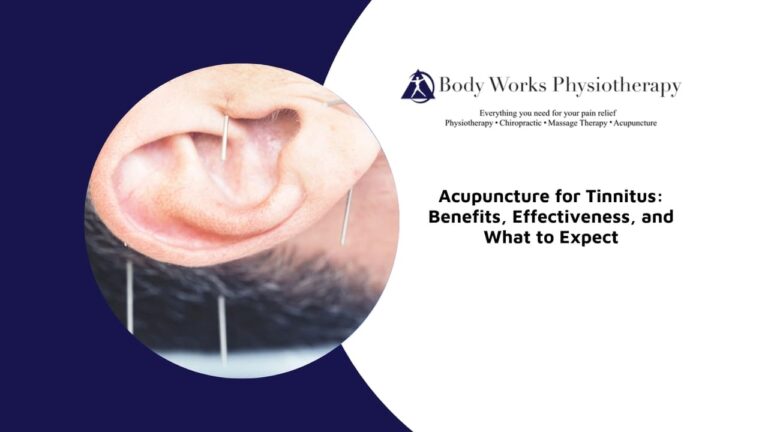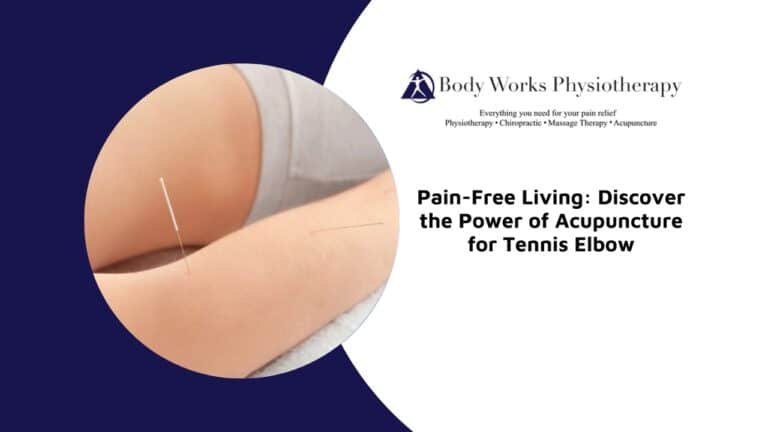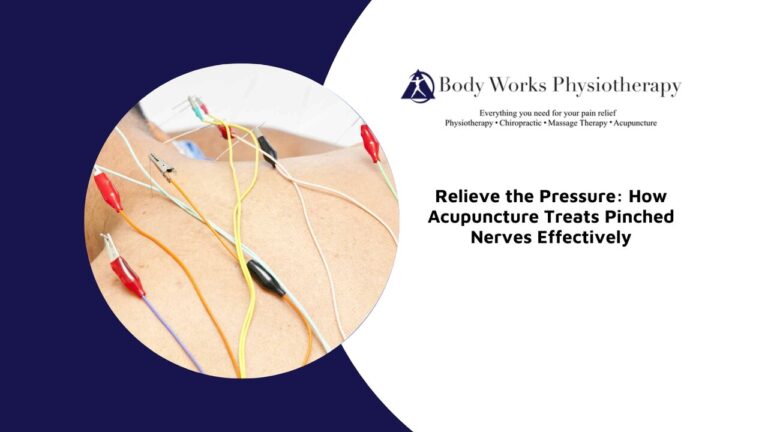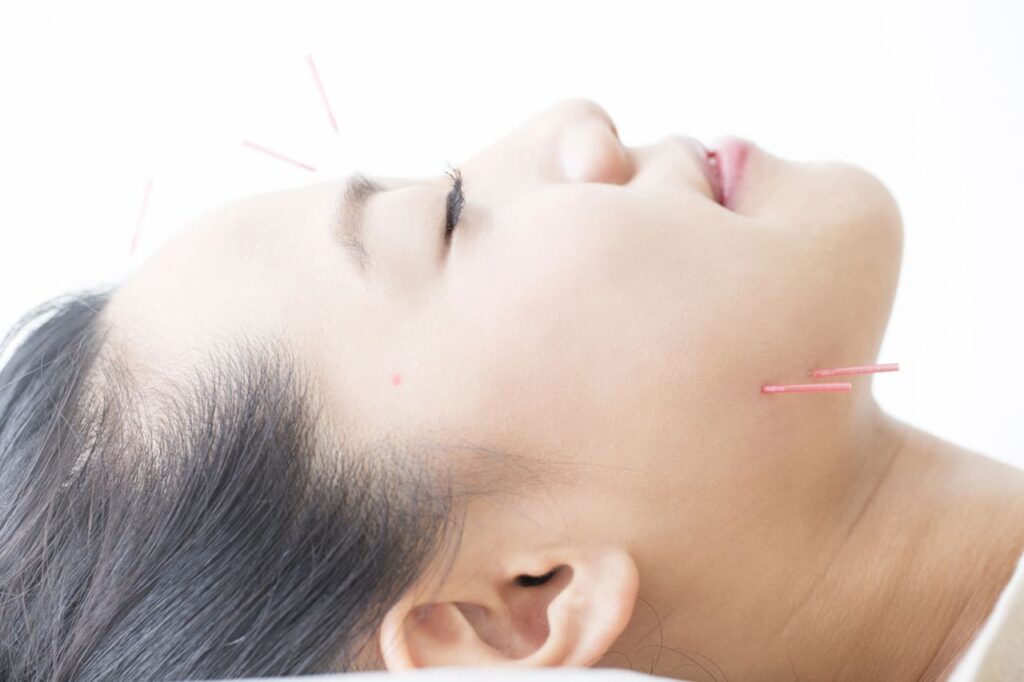
Temporomandibular joint (TMJ) disorders can lead to persistent jaw pain, headaches, and difficulty speaking or chewing. While traditional treatments like medication or night guards can provide relief, many people are turning to acupuncture as a natural, whole-body solution. In this blog, we’ll explore how acupuncture can help alleviate TMJ symptoms, what to expect from treatment, and why it may be a powerful complement to conventional care.
Acupuncture for TMJ Pain and Discomfort: How it Works
Temporomandibular joint (TMJ) disorders often cause pain in the jaw, face, and neck, making it difficult to chew, speak, or even relax. Acupuncture offers a holistic approach to addressing both the physical and emotional components of TMJ-related pain.
Acupuncture relieves TMJ pain by stimulating specific points on the body to promote blood flow, relax jaw muscles, and reduce inflammation. It also encourages the release of endorphins — the body’s natural painkillers — while modulating the nervous system to reduce stress and muscle tension. By restoring balance to the body, acupuncture addresses both the physical strain and the emotional stress that often contribute to TMJ dysfunction.
This dual action makes acupuncture a powerful tool for managing both the symptoms and deeper causes of TMJ discomfort.
Chronic TMJ Disorders: Can Acupuncture Help?
Chronic TMJ disorders can be frustrating and persistent, often involving a complex mix of muscular tension, jaw misalignment, and stress. For many people, acupuncture provides a welcome alternative to medication or invasive interventions.
Yes, acupuncture is considered an effective treatment for chronic TMJ disorders. Research shows that it can significantly reduce pain intensity, improve jaw mobility, and ease muscle tightness around the jaw and neck. It’s particularly helpful for people looking for a drug-free, non-surgical approach to long-term symptom management. Many individuals report lasting relief and greater comfort with regular acupuncture sessions.
For those managing chronic TMJ, acupuncture offers both symptom relief and improved quality of life.
Acupuncture Session for TMJ: What to Expect
If you’re new to acupuncture, knowing what to expect during your first few sessions can help ease any apprehension. Each treatment is tailored to your needs and focuses on relaxation and targeted pain relief.
- Initial Assessment: Your practitioner will begin by asking about your TMJ symptoms, medical history, lifestyle, and stress levels to guide treatment planning.
- Needle Placement: Thin, sterile needles are gently inserted into acupuncture points around the jaw, temples, ears, neck, and sometimes the hands or feet — all connected by energy pathways involved in TMJ dysfunction.
- Sensations and Duration: You may feel a slight tingling, warmth, or mild pressure. Most people find the experience comfortable and relaxing. Sessions typically last between 30–60 minutes.
- Post-Treatment Experience: Many people report reduced tension and pain after just one session, along with an overall sense of calm and mental clarity.
These sessions are designed to relieve pain while also encouraging deeper relaxation and healing.
How Many Acupuncture Sessions Are Needed to See Improvements in TMJ Symptoms?
Everyone’s experience with TMJ is different, so the number of acupuncture sessions needed can vary. That said, treatment usually follows a general pattern based on symptom severity and chronicity.
- Mild or Acute Cases: People may experience noticeable relief within 3–5 sessions, especially when symptoms are stress-related or newly developed.
- Chronic or Long-Term TMJ: Individuals with long-standing pain often require 8–12 sessions to achieve consistent improvement. Sessions are typically scheduled weekly at first.
- Ongoing Support: Once symptoms stabilize, occasional maintenance sessions may be recommended to manage stress and prevent recurrence.
A personalized treatment plan ensures that your care is progressive and adapted to your specific response over time.
Using Acupuncture for TMJ Treatment: Possible Risks or Side Effects
Acupuncture is considered very safe when performed by a certified and experienced practitioner. Most side effects are mild, temporary, and uncommon.
- Mild Bruising or Soreness: You may feel slight tenderness or see minor bruising where the needles were inserted, especially in sensitive areas like the face or neck. This usually fades within a day or two.
- Fatigue or Lightheadedness: Some people feel unusually relaxed or slightly tired after a session, especially the first few times. These sensations are short-lived and typically go away with rest.
- Minor Bleeding: A tiny drop of blood might appear at the needle site, but it’s rare and not a cause for concern.
- Temporary Symptom Flare-Up: Occasionally, symptoms may feel more noticeable before they improve, but this is usually part of the body’s natural healing response.
- Serious Risks Are Extremely Rare: Complications like infection or nerve irritation are highly unlikely when treatment is performed by a licensed professional using sterile, single-use needles.
Overall, acupuncture is a low-risk and well-tolerated treatment option for TMJ pain. With proper care and a skilled practitioner, most people find it a safe and calming part of their recovery.
Can Acupuncture Address the Root Causes of TMJ Disorders?
TMJ dysfunction often has multiple underlying contributors, including muscle imbalance, stress, poor posture, and clenching or grinding habits. Acupuncture helps correct many of these contributing factors.
Acupuncture can help address the root causes of TMJ disorders by reducing physical tension, balancing muscle activity, promoting better circulation, and supporting nervous system regulation. While it may not correct structural jaw issues like dental misalignment, it plays a key role in managing the stress, inflammation, and muscle tightness that frequently aggravate the condition.
By taking a holistic approach, acupuncture supports long-term healing — not just symptom relief.
Comparing Acupuncture to Other Treatments for TMJ Pain
TMJ pain can be managed through a variety of interventions — from medication to mouthguards to surgery — but not all treatments are appropriate or desirable for every individual.
- Medications: Pain relievers or muscle relaxants may ease symptoms but don’t address the root causes or long-term muscle tension.
- Dental Appliances: Night guards and bite splints help reduce teeth grinding but may not relieve stress or tight jaw muscles on their own.
- Surgery: Surgical procedures are invasive and usually reserved for severe or structural cases of TMJ dysfunction.
- Acupuncture: This natural therapy provides a non-invasive, drug-free alternative that supports whole-body balance, reduces pain, and targets the nervous system’s role in tension and stress.
Acupuncture offers a holistic and non-invasive approach compared to treatments like medication, surgery, or dental appliances. It focuses on restoring the body’s natural balance rather than masking symptoms — making it a valuable addition to a comprehensive TMJ care plan.
Find the Relief You’ve Been Looking For
TMJ pain can disrupt everything from eating to sleeping, but relief is possible. Acupuncture offers a natural, non-invasive way to ease muscle tension, reduce pain, and restore comfort — without relying on medications or surgery. Whether your symptoms are recent or long-standing, this holistic approach targets both the physical and stress-related causes of TMJ discomfort. If you’re ready to explore a gentle, effective treatment option, contact the team at Body Works Physiotherapy in Scarborough today. We’re here to support your recovery and help you get back to feeling your best.

